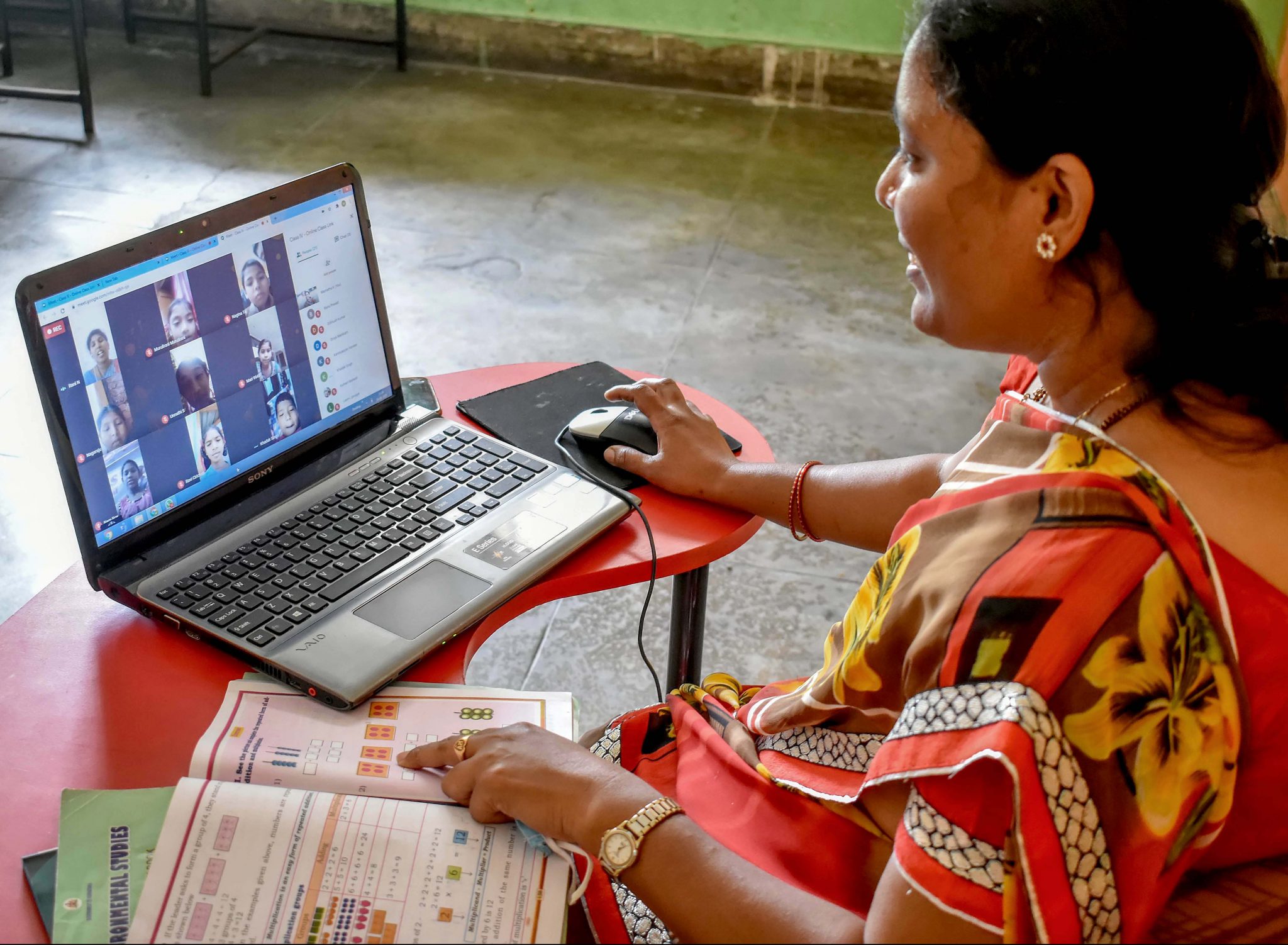- Courses
- GS Full Course 1 Year
- GS Full Course 2 Year
- GS Full Course 3 Year
- GS Full Course Till Selection
- Answer Alpha: Mains 2025 Mentorship
- MEP (Mains Enrichment Programme) Data, Facts
- Essay Target – 150+ Marks
- Online Program
- GS Recorded Course
- Polity
- Geography
- Economy
- Ancient, Medieval and Art & Culture AMAC
- Modern India, Post Independence & World History
- Environment
- Governance
- Science & Technology
- International Relations and Internal Security
- Disaster Management
- Ethics
- NCERT Current Affairs
- Indian Society and Social Issue
- NCERT- Science and Technology
- NCERT - Geography
- NCERT - Ancient History
- NCERT- World History
- NCERT Modern History
- CSAT
- 5 LAYERED ARJUNA Mentorship
- Public Administration Optional
- ABOUT US
- OUR TOPPERS
- TEST SERIES
- FREE STUDY MATERIAL
- VIDEOS
- CONTACT US
The Deletion of Workers from MGNREGA Job Cards: Right to Work
The Deletion of Workers from MGNREGA Job Cards: Right to Work
The Mahatma Gandhi National Rural Employment Guarantee Act (MGNREGA) is a landmark legislation that guarantees a legal right to work for rural households, providing 100 days of wage employment each year.
- This right is recorded through a job card issued to each household, listing all eligible adults.
- The job card ensures that workers have access to the employment provided by the program, which is essential for combating rural unemployment and poverty.
- However, recent reports indicate a surge in deletions of workers' names from job cards, raising questions about the integrity of the system and the possible denial of workers' legal right to work.
Status of the Right to Work in India:
|
Aspect |
Details |
|
Constitutional Status |
The "right to work" is not explicitly a fundamental right. It is part of Article 41 under the Directive Principles of State Policy, making it unenforceable in court. |
|
Article 41 |
States that the state must ensure the right to work, education, and public assistance in certain cases: unemployment, old age, sickness, disablement, and other cases but does not mandate enforceability. |
|
Judicial Interpretation |
The Supreme Court, through its judgment in Olga Tellis v. Bombay Municipal Corporation, recognized the "right to work" as part of the "right to life" under Article 21, making it a fundamental right. |
Legal Rules for Deletion:
- According to Schedule II, Paragraph 23 of the MGNREGA Act, a worker's name can be removed from a job card under certain circumstances, including:
- They provided false information during registration.
- The household migrates permanently.
- The job card was given due to duplicate records or forged documents.
- If a deletion is going to happen, the worker must be given a chance to explain their case in front of independent persons.
- All deletions must be recorded and reported to the Gram Sabha (village council) and updated in the MGNREGA Management Information System (MIS).
Rules for Worker Deletion
- The Ministry of Rural Development (MoRD) issues Master Circulars that explain how MGNREGA should be carried out, including how deletions should be handled.
- The 2021-22 circular says that job cards can be deleted only for a few specific reasons, like:
- If a household migrates permanently.
- If there is a duplicate job card.
- If the card was issued based on fake documents.
- The circular also says that if a Gram Panchayat (village council) is changed into a Municipal Corporation, all job cards in that area should be deleted.
- Furthermore, before any deletion happens, a Program Officer must verify the reason.
- The deletions should also be documented, and the updates should be made in the MGNREGA MIS.
Increase in Deletions (2022-23)
- In the year 2022-23, there was a huge increase in deletions—about 5.53 crore workers were deleted, up from 1.49 crore in 2021-22, marking a 247% rise in deletions.
- Over the past 4 years, 10.43 crore workers were deleted from the MGNREGA system.
- This increase in deletions happened around the time when the government made Aadhaar-based payments mandatory for MGNREGA.
- To make this system work, every worker's Aadhaar number needs to be linked with their job card.
- Officials were told to meet targets for Aadhaar seeding, and reports suggest that in some cases, workers were deleted without proper checks or verification to meet these targets.
Reasons for Deletion:
Data from a sample of 1,914 villages across 21 states showed the main reasons workers were deleted from job cards. These reasons include:
- "Not Willing to Work": This was the most common reason for deletions. It accounted for about 71% to 83% of deletions.
- However, many workers who were marked as “not willing to work” had actually asked for work or worked during the same year.
- "Duplicate Applicant": Some workers were deleted because they were listed more than once on the job cards.
- "Fake Applicant": This was another reason for deletion, though it was less common compared to other reasons.
- "Non-existent in Panchayat": Some workers were deleted because they were incorrectly marked as non-existent in the village records.
- "Village becomes urban": In some cases, workers were deleted because the village was reclassified as urban.
- According to the law, if a village becomes urban, all job cards in the village should be deleted.
- But this rule was not always followed correctly, and only some workers were deleted.
Case Studies: Differences in Deletion Numbers:
- In certain blocks, the number of deletions was very high.
- For example, in the Madanpur block of Bihar, 53,000 workers were deleted, while in the Mayureshwar-I block of West Bengal, 32,000 workers were deleted.
- In some places, there were huge differences in the number of deletions between villages.
- For example, in Dakshini Umanga village (in Bihar), 4,877 workers were deleted, while in Shekhpur village (also in Bihar), only three workers were deleted.
- This shows that deletions were not happening in a consistent or fair manner.
- In West Bengal, the deletions increased dramatically in 2022-23, jumping from 550 deletions in 2021-22 to 31,861 deletions in 2022-23.
- In this state, the official reason for many deletions was that workers were "duplicate applicants" or "non-existent in the Panchayat," even though many of these workers were legitimate.
Problems and Concerns:
|
Issue |
Key points |
Recommendations |
|
Arbitrary Deletions |
Workers deleted without proper procedure or Gram Sabha involvement. |
- Conduct independent checks and involve Gram Sabha. |
|
Violation of Right to Work |
Deletions for "not willing to work" violate the legal right to work under MGNREGA. |
- Respect workers' right to work and ensure deletions are justified. |
|
No Verification of Reasons |
Reasons for deletions are not properly verified. |
- Verify deletion reasons before action is taken. |
|
Impact on Vulnerable Workers |
Vulnerable groups (e.g., women, migrants) face challenges updating details or providing documents. |
- Support vulnerable workers in updating information and ensure inclusion. |
|
Grievance Systems |
Lack of clear process for appealing wrongful deletions. |
- Set up accessible grievance systems for workers to appeal deletions. |
|
Transparency |
MGNREGA MIS not regularly updated with accurate deletion data. |
- Regularly update and maintain MGNREGA MIS. |
|
Proper Training |
Officials may lack training in MGNREGA rules, causing errors. |
- Train officials and involve community representatives in decision-making. |
|
Public Awareness |
Workers may not know their rights or how to appeal wrongful deletions. |
- Raise public awareness about MGNREGA rights and appeals processes. |
Conclusion
The recent surge in deletions of workers from MGNREGA job cards is a serious issue that threatens workers’ legal right to work. While the government argues that deletions are necessary to improve accuracy and transparency, evidence shows that many deletions are arbitrary and do not follow the law. To protect the goals of MGNREGA—providing employment and social justice—the deletion process must be made more transparent, accountable, and fair. Regular checks, better grievance redressal, and stronger community involvement are needed to ensure that MGNREGA delivers on its promises to the rural poor.




